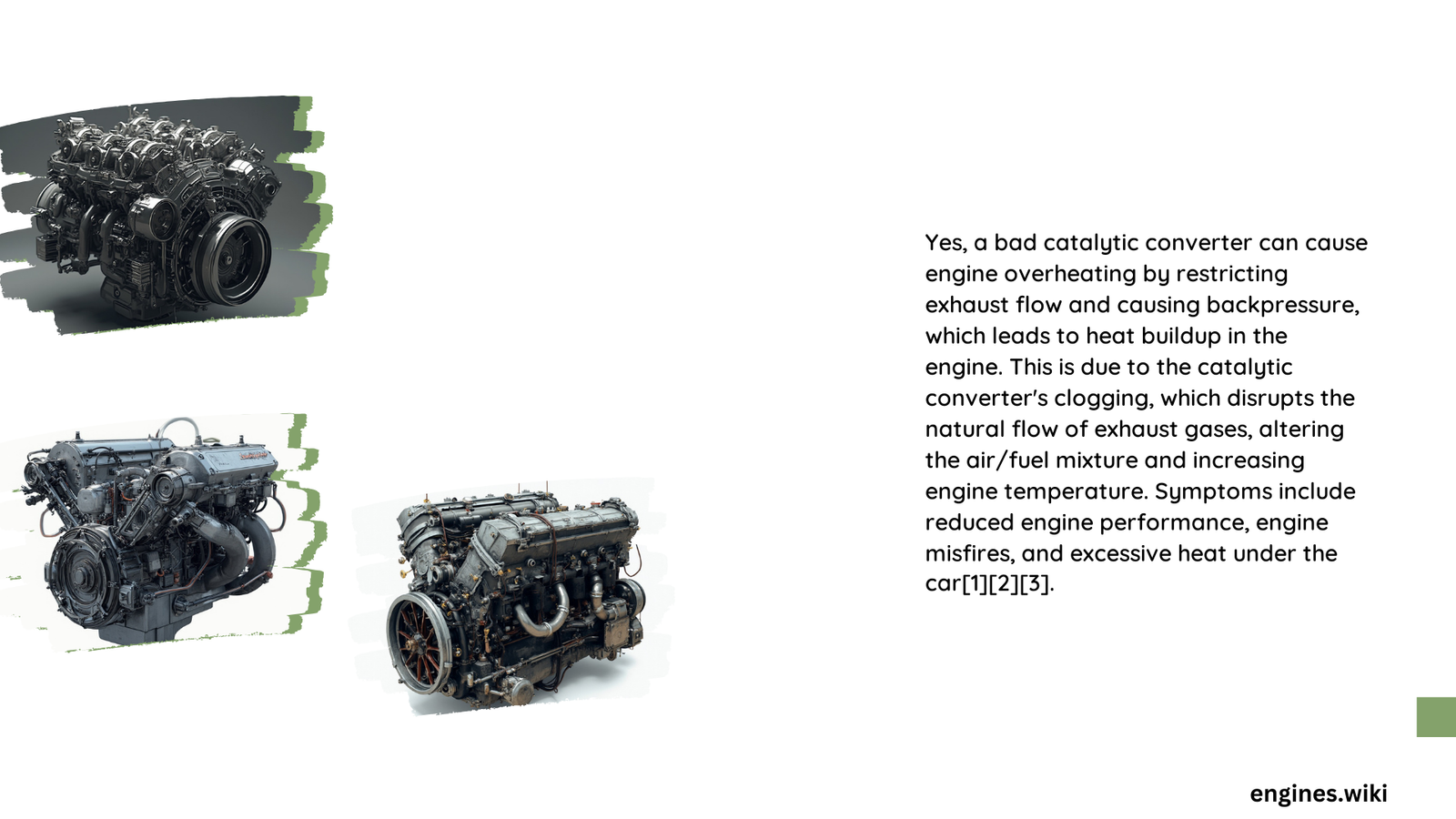A bad catalytic converter can indeed cause significant engine overheating through multiple complex mechanisms. When this critical exhaust system component becomes damaged or clogged, it creates substantial backpressure, disrupts air-fuel mixtures, and generates excessive heat that radiates back into the engine, potentially leading to serious performance issues and potential long-term damage to your vehicle’s powertrain.
What Happens When Catalytic Converter Causes Engine Overheating?
How Does a Bad Catalytic Converter Restrict Exhaust Flow?
A malfunctioning catalytic converter creates significant exhaust system challenges:
- Backpressure Buildup: Restricts normal exhaust gas evacuation
- Increased Engine Strain: Forces engine to work harder
- Heat Generation: Causes temperature rise beyond normal operating ranges
Quantitative Impact of Exhaust Restriction
| Restriction Level | Backpressure Increase | Temperature Rise | Performance Impact |
|---|---|---|---|
| Mild | 10-15% | 15-25°F | Slight performance reduction |
| Moderate | 15-25% | 25-40°F | Noticeable power loss |
| Severe | 25-40% | 40-60°F | Significant overheating risk |
What Are Primary Symptoms of Catalytic Converter-Induced Overheating?
Vehicle owners should watch for these critical warning signs:
- Persistent Check Engine Light
- Indicates potential oxygen sensor or exhaust system malfunction
-
Often accompanied by error codes related to emissions
-
Unusual Engine Temperature Readings
- Rapid temperature increases
-
Inconsistent temperature gauge behavior
-
Reduced Engine Performance
- Sluggish acceleration
- Decreased fuel efficiency
- Rough idling
How Do Catalytic Converter Problems Trigger Overheating?
Several interconnected mechanisms contribute to engine overheating:
- Unburned Fuel Accumulation: Excess fuel enters converter, generating extreme heat
- Oxygen Sensor Malfunction: Disrupts precise air-fuel mixture
- Physical Substrate Damage: Reduces exhaust system efficiency
What Are Potential Consequences of Prolonged Overheating?
Ignoring catalytic converter issues can lead to:
- Engine component degradation
- Potential complete engine failure
- Expensive repair costs
- Reduced vehicle lifespan
How Can Drivers Prevent Catalytic Converter-Related Overheating?
Recommended preventive measures:
- Regular vehicle maintenance
- Prompt addressing of check engine light
- Annual exhaust system inspections
- Use high-quality fuel
- Avoid extended idle periods
What Are Repair and Replacement Considerations?
- Average Replacement Cost: $500 – $2,500
- Typical Lifespan: 10-15 years
- Warranty Coverage: Often included in manufacturer’s powertrain warranty
Expert Recommendations

Professional mechanics suggest:
– Diagnose issues early
– Use specialized diagnostic tools
– Consider professional inspection for complex symptoms
Technical Insights
Modern catalytic converters use precious metals like platinum, palladium, and rhodium to convert harmful emissions. When these components become compromised, they directly impact engine performance and temperature regulation.
Conclusion
Understanding the relationship between catalytic converters and engine overheating helps vehicle owners maintain optimal performance and prevent costly repairs. Regular maintenance and proactive diagnostics are key to preserving your vehicle’s health.
